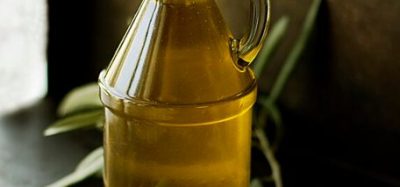Sustainable palm oil: creating a balance between consumer and environmental needs
- Like
- Digg
- Del
- Tumblr
- VKontakte
- Buffer
- Love This
- Odnoklassniki
- Meneame
- Blogger
- Amazon
- Yahoo Mail
- Gmail
- AOL
- Newsvine
- HackerNews
- Evernote
- MySpace
- Mail.ru
- Viadeo
- Line
- Comments
- Yummly
- SMS
- Viber
- Telegram
- Subscribe
- Skype
- Facebook Messenger
- Kakao
- LiveJournal
- Yammer
- Edgar
- Fintel
- Mix
- Instapaper
- Copy Link
Posted: 21 March 2014 | European Parliament | No comments yet
Ms Julie Girling, MEP ECR UK welcomed a broad range of stakeholders to engage and debate with leading experts on sustainability and nutrition of palm oil…


Ms Julie Girling, MEP ECR UK welcomed a broad range of stakeholders to engage and debate with leading experts on sustainability and nutrition of palm oil. This commodity has come under increasing pressure and often unfairly so in the last few years. Ms. Girling opened the meeting saying “I wanted to create a forum where the facts could be aired and debated, allowing experts to exchange views with members of the European Parliament.”
Palm oil has specific functional properties that make it a key ingredient in food manufacturing as part of the vegetable oils mix used. Palm oil as an ingredient in itself is neither bad nor good. He specified “Palm fruit oil contains 50% saturated and 50% unsaturated fatty acids and relatively high amounts of antioxidants. Total replacement of saturated fatty acids is impossible because texture, stability, and melt-in-the-mouth feel properties” Prof. Hornstra highlighted the need for better nutrition education and simpler communication to consumers.
Dr. Alain Rival, CIRAD informed participants “Palm oil can be a very important poverty alleviator. In fact, 40% of global palm oil is produced by smallholder farmers in South East Asia, Africa and South America.”
The Indonesian Vice Minister of Trade H.E. Mr. Bayu Krisnamurthi insisted that smallholders do not have the resources to change their plantations and asked who will pay the cost of changing the system. He also queried the future of Indonesian palm oil in Europe. He made the following plea to the European Parliament ‘People don’t know about [sustainable] palm oil, let’s make them know”
Dr. Rival stated that demand for oil palm will continue to increase in response to a growing and increasingly affluent global population due to its high yields, versatility and positive impact on economic development for producing countries. However, native biodiversity within oil palm plantations is far lower than the natural forests they often replace.
Adam Harrison WWF stressed that “drawing a direct line between oil palm and deforestation is not that easy”. Rather than considering the negative aspects of palm oil in Europe, it is more impactful to support a shift to more sustainable production techniques. Harrison said the big challenge we face is the production of palm oil on peatland. He stated “The problem is not palm oil itself, but where and how it is produced. Replacing palm oil is absolutely not the solution”
Food industry participants underlined the importance of European manufacturers public commitments through national alliances in a number of European countries to only use certified sustainable palm oil by the end of 2015. Furthermore, they strongly opposed the use of zero palm oil claims which fuel misconceptions among consumers and undermine the positive advances towards a sustainable palm oil value chain.
Supply chain stakeholders, from producers to NGOs and food manufacturers, set up the Roundtable for Sustainable Palm Oil (RSPO) in 2004. This global scheme is necessary to ensure that the palm oil in products we buy is made to an acceptable sustainable standard, respectful of both the environment and workers.
Greenpeace’s Jonas Hulsens called for the industry to go beyond the RSPO and implement No Deforestation policies in order to eliminate forest destruction from their supply chain. Danielle Morley, RSPO said “All stakeholders share a common goal, RSPO is the best possible standard for all actors along the chain”. The standard is a consensus building model of continuous improvement. She extended an invitation to Greenpeace and other critics to come together to identify the gaps and define improvements going forwards.
When asked what the EU can do to encourage better demand for certified sustainable palm oil, Morley replied the EU Food Information to Consumers Regulation, coming into force in December 2014 and introducing labelling of individual oils, is an opportunity to inform consumers of the availability of sustainable palm oil.
Event organisers concluded that given the complexity of the palm oil value chain more education is needed. They relayed the speakers’ demand to go into the public debate and inform consumers of basic, important facts on sustainable palm oil. Ms. Girling and MEP colleagues agreed that this work would be of increased importance in the next European Parliament 2014 – 2019







